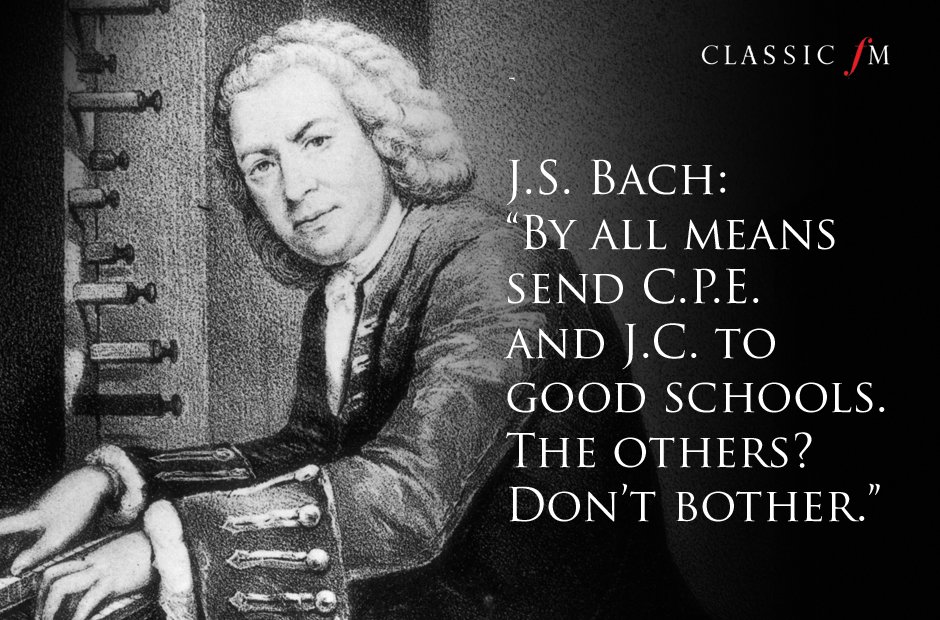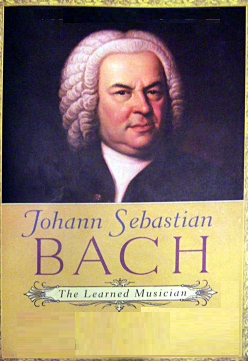

Unusually for Bach, the text is Italian only one other cantata ( BWV 209) has Italian text. Its librettist and first performance are also unknown. History and text īach composed this cantata in Köthen in 1718 or 1719 for an unknown occasion. There I had a gracious Prince, who both loved and knew music, and in his service I intended to spend the rest of my life. He had no choir at his disposition, but several excellent singers who sometimes stayed for a short period.
:max_bytes(150000):strip_icc()/51246888-56a153993df78cf77269aa16.jpg)
As the court was Reformed, he had no obligations to compose church music, but focused on instrumental works.


Bach wrote the unusual work on an Italian libretto for a bass soloist and harpsichord.Īfter an extended period at the court of Weimar, Bach was Kapellmeister at the court of Leopold, Prince of Anhalt-Köthen between 17, directing a qualified musical ensemble. "A monumental work that must find its way into the library of every musician and every dedicated lover of music." Isaac Stern "It's unlikely that anyone will fashion a finer tribute to Bach's] genius." Los Angeles Times Book Review "A magisterial biographical portrait.necessarily learned, but also user-friendly, helpful and entertainingly informative." Chicago Tribune "Likely to be the standard one-volume Bach biography for some time to come." New York Review of Books "A work of clarity worthy of its subject and his music." Wall Street Journal "Undoubtedly the most important Bach biography since Phillipp Spitta's life written over a century ago.Secular cantata composed by Johann Sebastian BachĪmore traditore (Treacherous love), BWV 203, is a secular cantata composed by Johann Sebastian Bach in Köthen between 17, while he was in the service of the court of Leopold, Prince of Anhalt-Köthen. With this highly readable book, Wolff sets a new standard for Bach biography. And throughout, we see Bach in the broader context of his time: its institutions, traditions, and influences. Wolff demonstrates the intimate connection between the composer's life and his music, showing how Bach's superb inventiveness pervaded his career as musician, composer, performer, scholar, and teacher. This engaging new biography portrays Bach as the living, breathing, and sometimes imperfect human being that he was, while bringing to bear all the advances of the last half-century of Bach scholarship. As we mark the 250th anniversary of Bach's death, author Christoph Wolff presents a new picture that brings to life this towering figure of the Baroque era. Bach in countless performances and recordings, the composer himself still comes across only as an enigmatic figure in a single familiar portrait.


 0 kommentar(er)
0 kommentar(er)
